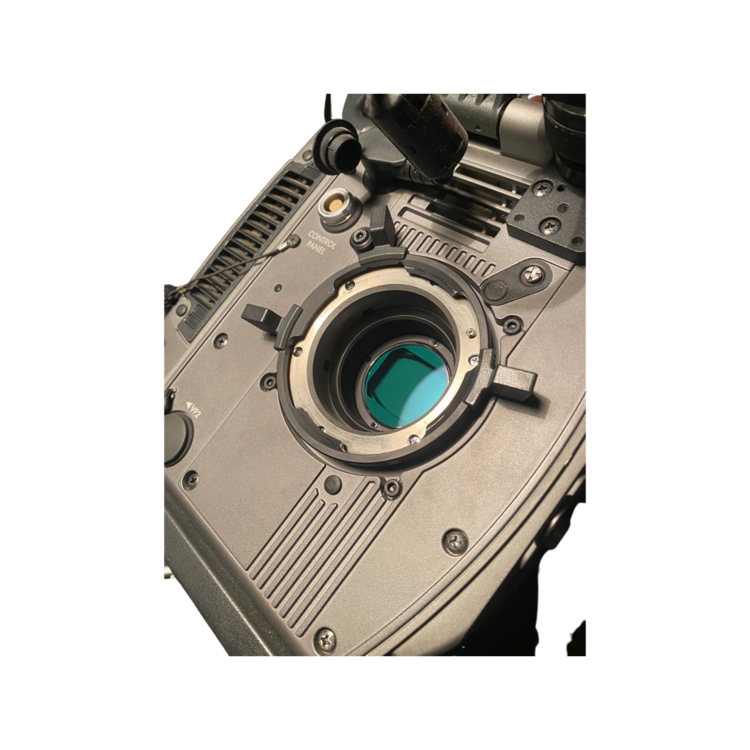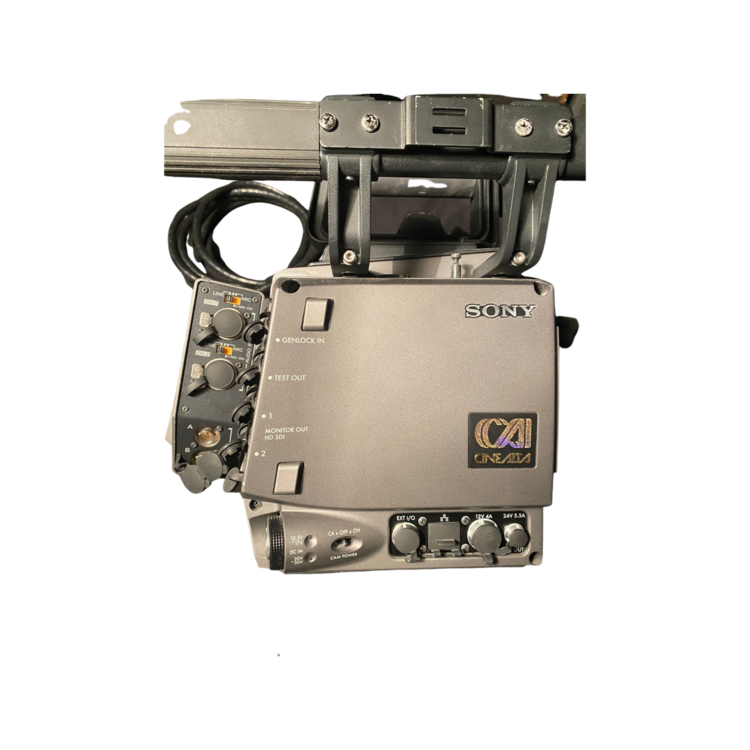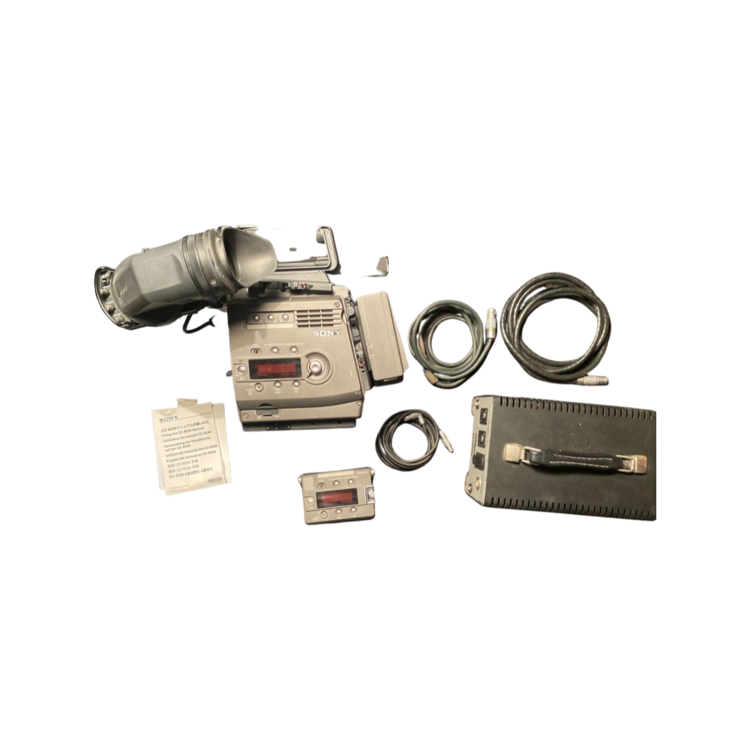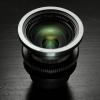Search the Community
Showing results for tags 'sensor'.
-
Lasergraphics has a non-Bayer sensor on their top end Director scanner. The cheaper LG scanners have Bayer sensors. From what I've read about camera sensors, the Bayer option offer a less sharp image. If so, why not drop the Bayer filter from all their scanners to get maximum sharpness? <><><><> Cine'-Kodak ad 1932 DDTJRAC Daniel D. Teoli Jr. Archival Collection Daniel D. Teoli Jr. Small Gauge Film Archive Daniel D. Teoli Jr. Advertising Archive Daniel D. Teoli Jr. VHS Video Archive Daniel D. Teoli Jr. Popular Culture Archive Daniel D. Teoli Jr. Audio Archive Daniel D. Teoli Jr. Social Documentary Photography
-
- scanner
- lasergraphics
-
(and 2 more)
Tagged with:
-
-
I apologize in advance if this isn't the correct sub-forum for this question, but it didn't seem like it fit into any of the other ones so I put it here. Feel free to change it if it doesn't. Lately, I've been watching all kinds of footage from different camera brands ranging from the most budget friendly film-making cameras all the way up to the premium stuff. And while there is no doubt that we're living in the golden age of cameras (in terms of being accessible to new-comers), at one point I came across a comment where someone mentioned the term "motion cadence" and how high level cameras have that little something that stands out against the budget versions. I never really knew the word for it until he said that term, and I have noticed that it really does add a pleasing motion to the image quality (this is all assuming 24fps 180 shutter, of course). What is the reason for this discrepancy between manufacturers? The only thing I could think of was perhaps the type of shutter being used in digital cameras but that's about it. Thanks
-
Hey there, I'm wondering if anyone on here knows where to find a infrared modified red epic. I have a video idea I'd like to try that would require infrared photography, but I can't find a rental house that has this camera. I've seen a few videos online that where shot with a modified red epic, but they are seemingly all personally owned cameras. Here are some examples of the effect: Hopefully someone on here "knows a guy". Thanks, Alan Gwiz
-
Scarlet Dragon with a 6k sensor for sale in Winnipeg Manitoba Canada! Not used since it’s most recent service in Toronto Ontario last year. Low hours! Includes EF mount! Proving to be a bit too expensive for me to build out so I’m selling the brain for cheap! Specs are as follows: https://support.red.com/hc/en-us/articles/360011397693-SCARLET-DRAGON-Specs
-
Hi everybody, I was reading a previous issues of "Film and Digital Times" and I came across a portion in wich the editor ask one of the lens engeneers behind the signature primes: -Q: "What happens with a large format lens like a signature prime on a Super 35mm camera like an Alexa SXT?" -A: "The LF lens looks the same as the S35 lens. An 18mm LF lens on the S35 camera looks just like an 18mm S35 lens on the S35 camera" Maybe I lack of knowledge, but I thought we were going to get a narrower field of view. So following the same logic for example if I put a 50mmn Master prime on an Arri 416 plus my lens would give me the same FOV as, for example, a 50mm Ultra 16 prime. I'm really confused about what happens when we put a bigger format lens on a smaller format sensor. Thanks in advance!
- 19 replies
-
- full frame
- lenses
-
(and 2 more)
Tagged with:
-
Hello all, So my friend owns an Sony A7s ii and it has an issue. As you can see from the videos and pictures it seems that there seems to be lint/dust on the sensor. What would be the best way to clean that out manually. I have camera cleaning gear of my own. I've posted a dropbox shareable link because they're too big if files. https://www.dropbox.com/sh/m3z230zcdhos5fp/AADv5uaVWnCQyEm6hbzSdfwxa?dl=0 Any suggestions would be great! Thank you!
-
Hello Sorry if it's a silly question but i'm new to all that ... These lenses from this RENTAL STORE are made for 35mm Film cameras ... right ?? (ARRI Master Prime , ZEISS T 1,3 , ZEISS T 2.1, Cooke S4, Cooke Zoom 20-100mm, Ultra Prime) And also are compatible with Cine PL digital cameras like ALEXA, RED, Canon EOS C300PL etc ... Right ?? But according to this chart ... If I want to use a 18mm lens in the way Kubrick it .. it's impossible with the Digital cameras .. Right ?? And the CLOSEST to that is Canon C300 with 99% !! Right ?? So the Canon C300 is better on that point than the high end ALEXA and AMIRA ?!?! And what is the solution to achieve an 100% result ??? Thank you !!
-
Irvine, CA — October 5, 2017. Today, RED Digital Cinema® announced a new cinematic full frame sensor for WEAPON® cameras, MONSTRO™ 8K VV. MONSTRO is an evolutionary step beyond the DRAGON 8K VV sensor with improvements in image quality including dynamic range and shadow detail. This newest camera and sensor combination, WEAPON 8K VV, offers full frame lens coverage, captures 8K full format motion at up to 60 fps, produces ultra-detailed 35.4 megapixel stills, and delivers incredibly fast data speeds — up to 300 MB/s. And like all of RED’s DSMC2 cameras, WEAPON shoots simultaneous REDCODE® RAW and Apple ProRes or Avid DNxHD/HR recording and adheres to the company’s dedication to OBSOLESCENCE OBSOLETE® — a core operating principle that allows current RED owners to upgrade their technology as innovations are unveiled and move between camera systems without having to purchase all new gear. “RED’s internal sensor program continues to push the boundaries of pixel design and MONSTRO is the materialization of our relentless pursuit to make the absolute best image sensors on the planet,” says Jarred Land, president of RED Digital Cinema. “The Full Frame 8K VV MONSTRO provides unprecedented dynamic range and breathtaking color accuracy with full support for our IPP2 pipeline.” The new WEAPON will be priced at $79,500 (for the camera brain) with upgrades for carbon fiber WEAPON customers available for $29,500. MONSTRO 8K VV will replace the DRAGON 8K VV in RED’s line-up, and customers that had previously placed an order for a DRAGON 8K VV sensor will be offered this new sensor beginning today. New orders will start being fulfilled in early 2018. RED has announced a comprehensive service offering for all carbon fiber WEAPON owners called RED ARMOR-W. RED ARMOR-W offers enhanced and extended protection beyond RED ARMOR, and also includes one sensor swap each year. “‘Good’ has never been ‘good enough’ for RED,” says Land. “We put ourselves in the shoes of our customers and see how we can improve how we can support them. RED ARMOR-W builds upon the foundation of our original extended warranty program and includes giving customers the ability to move between sensors based upon their shooting needs.” Additionally, RED has made its enhanced image processing pipeline (IPP2) available in-camera with the company’s latest firmware release (v7.0) for all cameras with HELIUM and MONSTRO sensors. IPP2 offers a completely overhauled workflow experience, featuring enhancements such as smoother highlight roll-off, better management of challenging colors, an improved demosaicing algorithm, and more. Visit red.com for details or find an authorized dealer or rental house in your area.
-
- RED
- RED Digital Cinema
-
(and 5 more)
Tagged with:
-
Will Kowa Anamorphics Cover RED Dragon 6K ?
Lewis Jelley posted a topic in Lenses & Lens Accessories
Hi All, I'm shooting a live music session with a number of cameras in the next couple of weeks, and initially had Alexa Mini's pencilled, along with some rehoused Kowa anamorphic lenses. I've just found out that the rental house I'm dealing with can offer me RED Dragon 6K's as an option instead. I've loved all of the tests I've done with this camera, and really like the size of the sensor (being close to FF). Unfortunately, I've only tested sets of spherical lenses with it so far, and so I'm not sure if the Kowa's that I've got pencilled will cover the Dragon's sensor area. I know you can crop and shoot in a lower resolution, but if possible I'd prefer to make the most of the height of the sensor. Final delivery of the sessions is likely to be HD, and I know you can shoot desqueezed proxies in 2K ProRes, but I'd prefer to work with the RAW for the sake of the grade. If anyone has any experience with this combination, that would be really helpful. Many Thanks, Lewis Jelley Cinematographer T: +44 (0)2920 251 255 M: +44 (0)7929 174 457 13 Mount Stuart Square, Cardiff, CF10 5EE http://stormandshelter.com -
Hello everyone! https://www.youtube.com/channel/UC4HtBBgGiacMtrgqOK1WClQ/videos A bit of shameless self-promotion here but it's closely related to this forum so I guess that's ok. I created a new youtube channel where I will try to study the technical side of cinematography under a 50% engineering 50% cinematography angle. I already uploaded a first batch of videos dealing with Dynamic Range. Any comment, good or bad, advice, outrage... is welcomed ! I love heated debates.
- 2 replies
-
- sensor
- dynamic range
-
(and 2 more)
Tagged with:
-
Are there any good resources or spread sheets that lay out all the popular cinema camera platforms side by side with in depth specs on the sensors. (Size,shape,fill factor, ect...)
-
I've been told the information in a 4k image from a 4k sensor is anything from 33% to 70% on a bayer sensor. I am so confused with so much misinformation around. I've looked through the forums and learned a lot about this topic. But it never answered this question. - Is 422 from a 4k sensor real 4k 422? - Exactly how much real color information is in a 4k sensor at 4k resolution (pixels)? You get the jagged edges when trying to key a 420 image... Why would a 4k 422 sampling from a 4k sensor be any different. If its not enough information there will it look like 420 even at 422?
-
Hi guys! After some research, I made a little chart one every rich man's favorite camera, the Alexa, which digs into how it really works. So I thought I might as well share it. The content holds true for every Alexa I believe, since they all have pretty much the same sensors and algorithms (even the Alexa 65 I assume, who consists of three Alexa sensors merged). On the right of the table are the only available curves to my knowledge, the LogC ones. Every other curves isn't, but should be available, so here they are. Where did I find this stuff ? A combination of gathering bits of informations here and there, and the ability to think like an Arri R&D guy I guess (they always seem to make the most logical choices in sensor architecture). CLICK and enjoy for zoomable chart.
- 141 replies
-
Hi everybody, I apologize in adavence if the question is silly but: I know that the bigger the sensor the shallower the depth of field is, but does that translate in digital related to the resolution of the camera? To be clearer, on the same camera, for example an alexa super 35mm cmos sensor, shooting 3.2k or 2k or standard HD is it gonna effect the depth of field? Thanks for the help!
- 2 replies
-
- depth of field
- resolution
-
(and 1 more)
Tagged with:
-
This is perhaps a stupid question, but I'm not an electrical engineer nor a computer programmer so I was hoping perhaps someone on here can shine some light on this. The new Black Magic Ursa's selling point is that it's going to be upgradable so it will (theoretically) never go obsolete. I know the sensor can be changed out. For example, if some day 6K becomes the next "big thing", many people assume you're just going to be able to purchase a 6k sensor for an upgrade. But is it really that simple? I would imagine if you upgrade the sensor, you would have to upgrade the processing power for the upgraded resolution and I see nothing mentioned about that. Any thoughts? It sounds too good to be true, as It reminds me of another company that promised a modular upgrade system that never ended up that way.
- 48 replies
-
- ursa
- blackmagic
-
(and 3 more)
Tagged with:
-
I saw this rather intriguing post on REDUSER.net and I thought someone who posts here more regularly might have heard similar murmurings. http://www.reduser.n...531#post1123531 I've added a screencap for posterity.
- 6 replies
-
- panavision
- imax
-
(and 3 more)
Tagged with:
-
From the new Red Shark article about the Sony F65: "The 20 megapixels quoted actually refer to the number of photosites on the sensor itself. Interpolation then allows us to increase the number of output pixels for 8K to 33 megapixels." So it's not actually an 8k sensor, and it doesn't actually record in 8k, am I right in thinking that means the camera isn't actually 8k then? Dunno, I'm still trying to work out where the holes are in this "3perf" camera! Sometimes I wish companies had more confidence in their products, theres certainly a fair percentage of the people who have shot on the F65 who have loved the images, can't the products stand for themselves? (Probably a very naive thing to be thinking but this kind of stuff does seem really silly) Freya










.thumb.png.a75acc5a9fbbac6b09530ed452346fe2.png)
